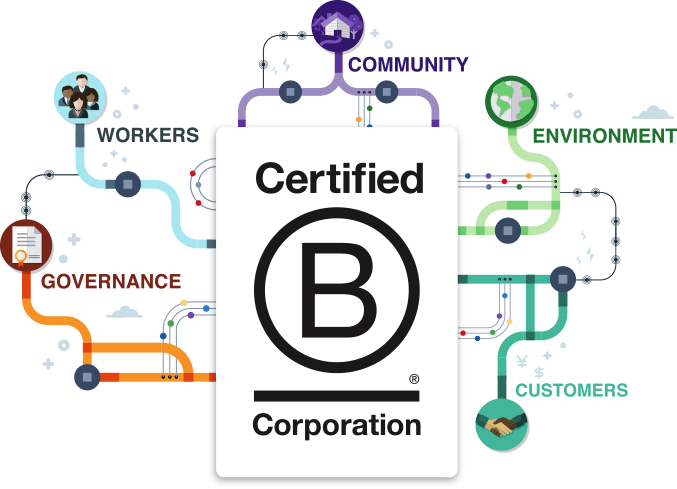The Time is Now to Lead with Purpose, Humanity, and Humility

Photo: Twitter
‘To be ‘purpose-led’, an organisation will need to stand for something in which it believes. It will need to go beyond a singular focus on profit, and strive towards impacting positively on society.’
John Lewis’s Partnership 1864-2014: A 150 Years Partnership for the Common Good
'Ambition must be grounded in the purpose of the organisation. Purpose is what an organisation stands for; why it does what it does; and what it should be trusted to deliver. Purpose is always broader than a simple bottom line.
An organisation’s purpose can be for the client; such as Amazon’s goal ‘To be earth’s most customer-centric company’; or the greater good, such as the World Bank’s mission to ‘End extreme poverty’, and the Bank of England’s to ‘Promote the good of the people of the United Kingdom by maintaining monetary and financial stability’.
The leader’s job is to ensure that the purpose of their organisation is always present and anchors its goals, values, and strategy.
Like diversity, purpose is not a “nice to have”. Evidence shows that purposeful companies have higher employee engagement, greater customer satisfaction, tighter supplier linkages and better environmental stewardship. The pay-offs to purposeful business are superior share price performance, better operational performance, lower costs of capital, smaller regulatory fines and greater resilience in the face of shocks.
Always remember that, as leaders, you will be stewards of the purpose of your organisations. In this sense, leadership is the acceptance of responsibility rather than the assumption of power. True leadership is not an end in itself but rather as a means to accomplishing a worthwhile goal.
These are lessons that some in financial services have had to re-learn in recent years.
An industry of the scale and importance of finance needs social capital as well as economic capital in order to operate, innovate and grow.
To maintain social capital, finance ultimately needs to be seen as a vocation, an activity with high ethical standards, which in turn conveys certain responsibilities. Those responsibilities recognise that finance is not an end in itself but a means to promote investment, innovation, growth and prosperity.’- ‘Reflections on Leadership in a Disruptive Age’, Speech given by Mark Carney, Governor of the Bank of England Regent’s University London Monday 19 February 2018
Open Letter to Mark Carney, Governor of the Bank of England
Thank you Governor Carney: Yes, You are Right- We Need Globalisation for the Common Good
Mr Trump, we are not what we earn!
However, and very sadly, being purpose-led, as opposed to being purely profit-minded, has been a hard sell in the business world; and to an extent, it still is. Many in business have a trade-off mentality – the idea that if we demonstrate more purpose, we should expect lower returns, but this mentality is increasingly being challenged. Firms can balance both profit and purpose and, in doing so, can achieve important business synergies, such as improved customer attraction and retention, higher staff engagement, lower costs, and the chance to identify fresh opportunities that others may overlook. In fact, it’s the firms focusing on both profit and purpose that will have the best opportunity to thrive in the future.
But, we must not despair, we must not lose hope, there are businesses that are purpose-led. They are showing the path to those wishing to follow: How Companies Can Really Become A 'Force For Good'
Become A Certified Ethical B Corporation Business

Photo:bcorporation.uk
A global community of leaders
Certified B Corporations are businesses that meet the highest standards of verified social and environmental performance, public transparency, and legal accountability to balance profit and purpose. B Corps are accelerating a global culture shift to redefine success in business and build a more inclusive and sustainable economy.
Society’s most challenging problems cannot be solved by government and non-profits alone. By harnessing the power of business, B Corps use profits and growth as a means to a greater end: positive impact for their employees, communities, and the environment. The B Corp community works toward reduced inequality, lower levels of poverty, a healthier environment, stronger communities, and the creation of more high quality jobs with dignity and purpose.
B Corps form a community of leaders and drive a global movement of people using business as a force for good. The values and aspirations of the B Corp community are embedded in the B Corp Declaration of Interdependence.
The B Impact Assessment and B Corp certification

Photo:bcorporation.uk
The B Impact Assessment is the most credible tool a company can use to measure its impact on its workers, community, environment and customers. The assessment is free and confidential, you can add multiple team members, set goals and compare your answers to thousands of other businesses.
Certifying as a B Corporation goes beyond a product or service certification. It is the only certification that measures a company’s entire social and environmental performance. From your supply chain and input materials to your charitable giving and employee benefits, B Corp Certification proves your business is meeting the highest standards of verified performance.
Positive impact is supported by transparency and accountability requirements. B Corp Certification doesn’t just prove where your company excels now—it commits you to consider your impact on stakeholders now and in the future by building it into your company’s legal structure.
Building a B Economy

Photo:bcorporation.uk
People don’t believe the existing economic system is working for them. They’re angry, and they’re right. That’s why we’re working to build a B Economy that works for everyone, for the long term.
In the B Economy, businesses compete to be best for the world, the people living in it, and the natural environment on which our quality of life depends.
To build a B Economy, we need a new kind of business that balances purpose and profit. B Corporations are businesses that are legally required to consider the impact of their decisions on their workers, customers, community, and environment. Certified B Corporations have met the highest standards of verified performance and transparency.
The B Economy is bigger than B Corps. B Lab collaborates with leaders across all sectors of society to build a broader global movement of people using business as a force for good.
The B Economy is built by everyone who works for, buys from, invests in, learns or teaches about, or supports businesses striving to create a shared and durable prosperity for all.
Case Study
Organic vegetable box firm Riverford certified as an ethical B Corp*
Devon-based company scores highly owing to employee ownership model
‘The organic vegetable box company Riverford has been certified as an ethical B Corporation business, reflecting its focus on its workers’ wellbeing through its John Lewis-style employee ownership model.
The Devon-based company scored 124.6 out of 200 in its first B Corp assessment, becoming the second highest-scoring food business overall in the UK behind the chocolate brand Divine Chocolate.
B Corp certification uses a broad assessment, substantiated by evidence, to score companies’ social and environmental performance. To certify as a B Corp, a company has to formally give people and environmental considerations the same weight as shareholders or profits. They must score at least 80 out of 200 to be certified and the assessment is repeated every three years.
A global model, there are now an estimated 307 certified B Corp businesses in the UK including Guardian Media Group, the owner of the Guardian. Big brands include Unilever’s Ben & Jerry’s ice-cream and the plant-based cleaning range Seventh Generation, while newer startups include the brewer Toast Ale.
Riverford notched up its highest score in the workers’ section of the assessment where factors scrutinised included employee ownership, a governance system including a co-owner council, and a high level of health, safety and wellness for its 800 staff. They each received the equivalent of a £1,300 annual dividend in June.
Guy Singh-Watson, the founder of Riverford, said: “Riverford has always sought to balance the needs of the planet, staff, suppliers and customers, with commercial success being a means to an end, not an end in itself. We have done right by our own definitions, and developed our own measures. I, for one, am intrinsically resistant to assessments of virtue.
“But these are niceties we can no longer afford; we need an objective, global approach to avoid the ultimate market failure of thoughtless overconsumption leading to self-destruction.”
In the immediate outbreak of the pandemic the company had to cope with demand on the scale of its Christmas peak – but without having six months to prepare – driven by its 75,000 existing customers ordering more frequently or adding more items.
Before lockdown it was making 50,000 to 55,000 deliveries every week, soaring to 85,000 at the peak – 70% up on the previous year. It has settled down to about 70,000 a week, up 40% on last year.’
*The above article by Rebecca Smithers, consumer affairs correspondent for the Guardian, was first published in The Guardian on 21 September 2020
Related articles:
Fat Cats: An invitation to dialogue
Values to live by to build a better world
A Businessman and an Economist in Dialogue for the Common Good: Dubai 2004
Wouldn’t the world be a better place with a bit more kindness? Harnessing the Economics of Kindness
Death and Destruction on Brothers’ Road to Serfdom
Values, Ethics, and the Common Good in MBA rankings: Where are they?
Are you profit maximiser? Then, be generous. It will be good for you!
What might an Economy for the Common Good look like?
Adam Smith and the Pursuit of Happiness
The Damning Impact of a Toxic Philosophy on America: The Tragedy of Ayn Rand
